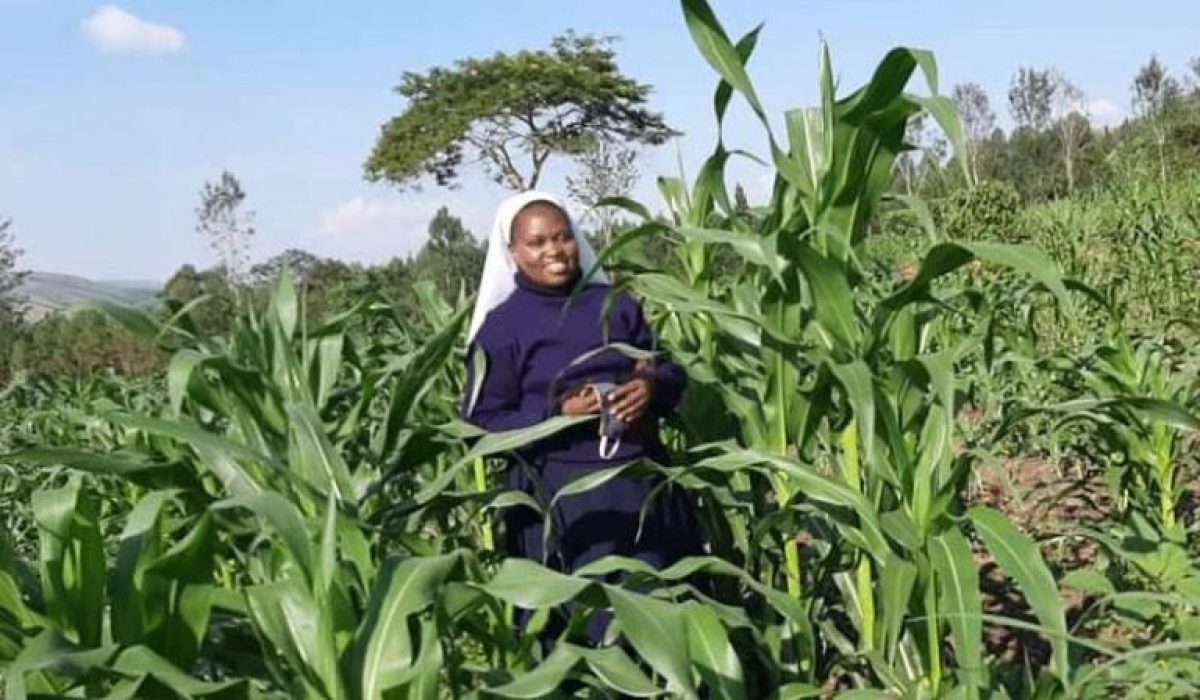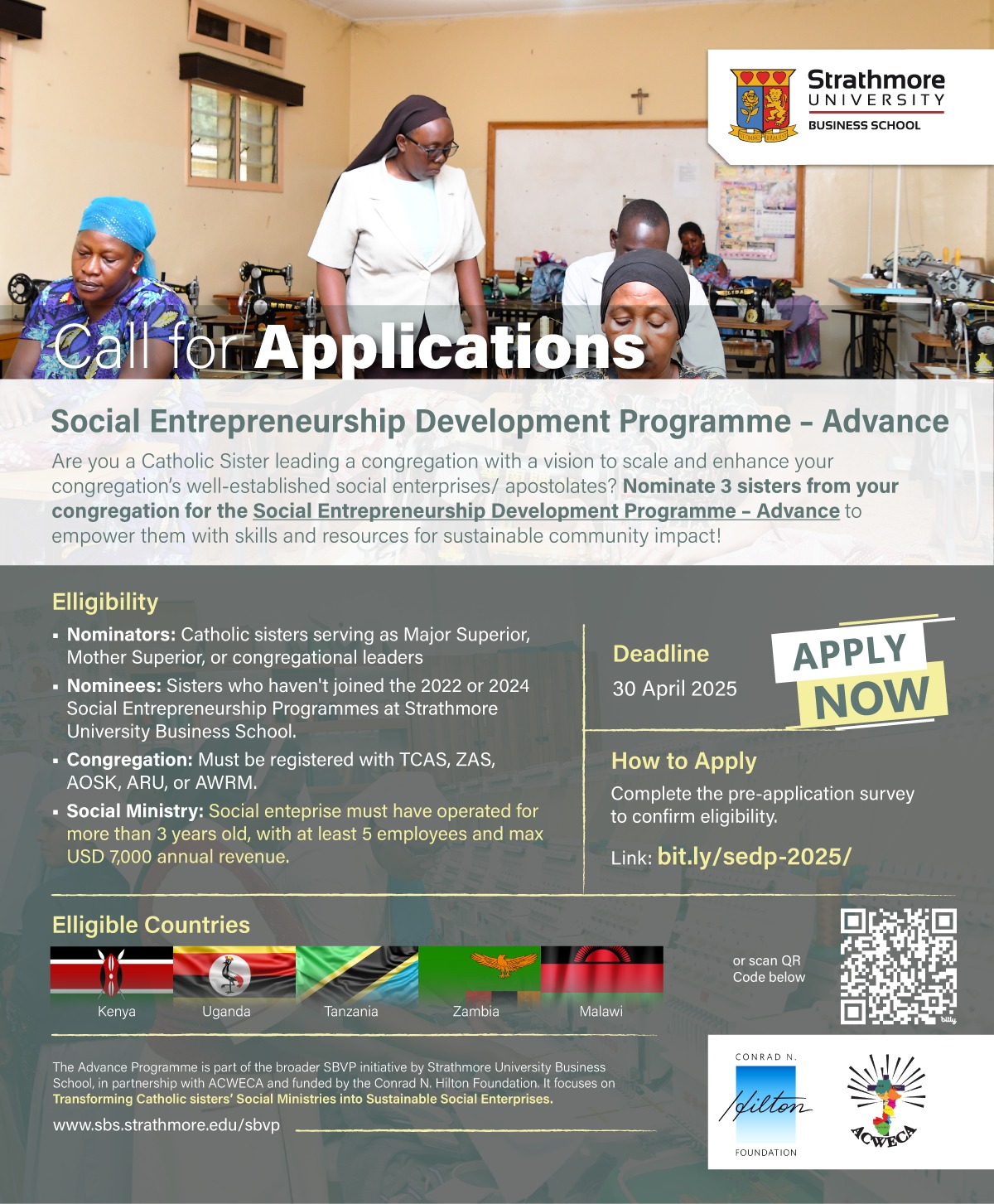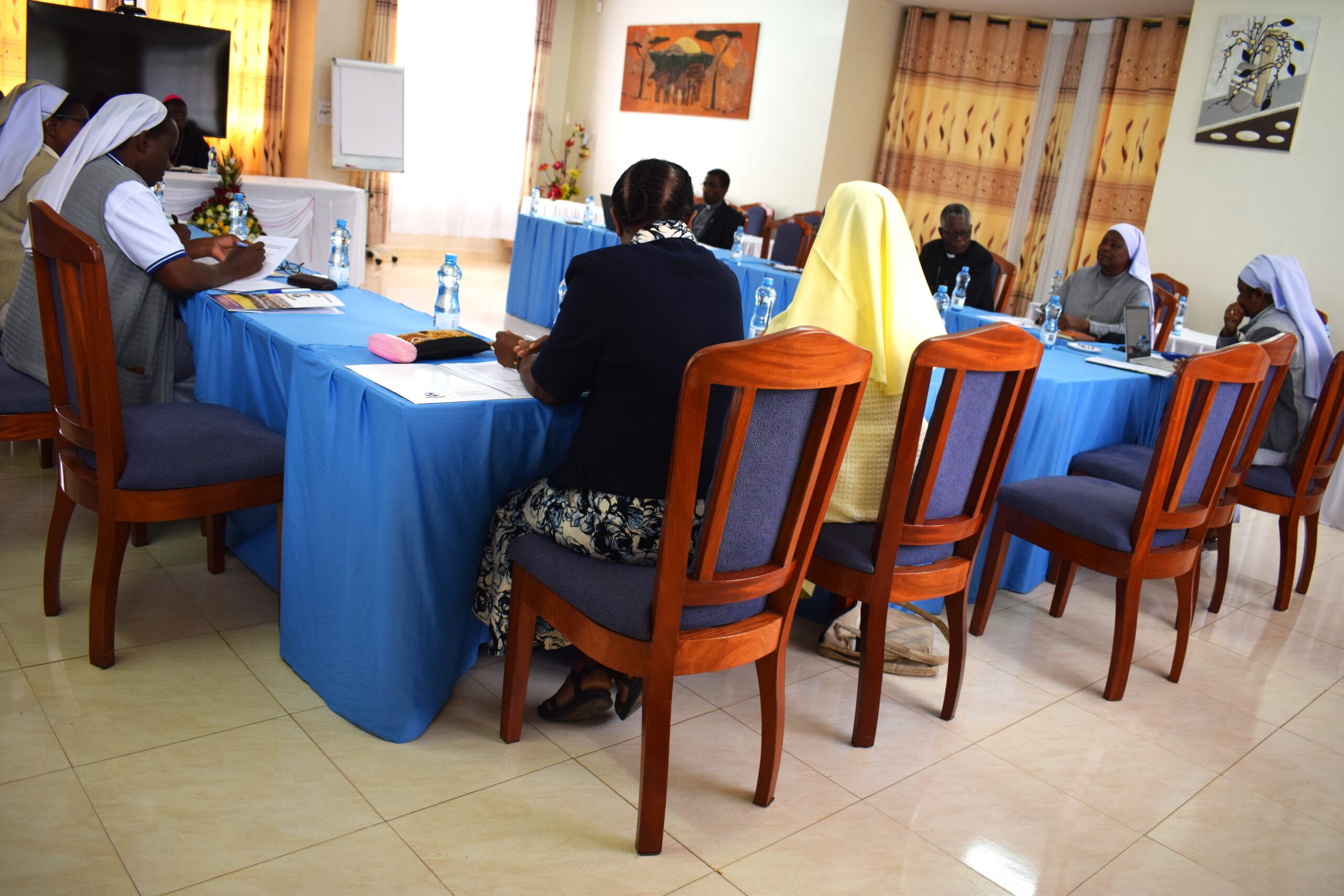he Association of Consecrated Women in Eastern and Central Africa (ACWECA) have commenced a social entrepreneurship project for Religious women to help Congregations within the region use the resources they have to create businesses and avoid donor dependency.
The project dubbed as Sister’s Blended Value Project (SBVP) aims to transform the social ministries of Religious women into social Entrepreneurial ventures for Congregations to remain sustainable and self-reliant.
“We realized that most Congregations have celebrated centenary (100 years of existence) anniversaries but they still depend on donors,” the Project Coordinator of SBVP Sr. Celestine Nasiali told AMECEA Online Monday, November 23.
“This will help the Sisters use the available resources to fight poverty and remain sustainable,” she continued while disclosing the birth of the project.
The project’s mission is to provide practical hands-on entrepreneurial skills that catalyze sustainable and scalable solutions to alleviate poverty across Religious women Congregations in ACWECA region.
The project was launched in 2019 with 11 Congregations drawn from Kenya, Uganda, Zambia, Tanzania, Malawi and Zimbabwe for pre-pilot test. Currently it has attracted 18 Congregations who are involved in various projects including poultry farming, agriculture, coffee farming and also working in schools to help students get skills for small businesses. By the year 2025, the project aims to target 100 Congregations.
According to Sr. Nasiali a member of the Oblate Sisters of the Assumption, the objectives of the SBVP is to “strengthen collaboration and network among Congregations in ACWECA region Improve technical capacity in social entrepreneurship and for them to achieve their mission by using the available resource to be more sustainable.”
Sr. Nasiali further disclosed that ACWECA approached Miller Centre for Social Entrepreneurship at Santa Clara University, California whose mission is to “accelerate entrepreneurship to end global poverty and protect the planet” to develop the curriculum and accompaniment for the Religious women.”
The program has four stages which include discovery and discernment stage; farming enterprise workbook; apprenticeship stage; and accelerator stage.
Sr. Nasiali who has been coordinating the project from early this year stated that through Miller Centre, ACWECA leadership invited three local social enterprises who are journeying with the Religious women at the apprenticeship stage.
The social enterprises include National Union of Coffee Agribusinesses and Farm Enterprises (NUCAFE) in Uganda who are empowering the Religious women in coffee farming; the Eggpreneur which is working in remote Kenya rural communities to build sustainable egg farming ventures that help families end the cycl
es of poverty; and ‘Teach a Man to Fish’, an organization which enable schools to provide relevant education on enterprises that empowers young people to succeed in work and in life.
Speaking to AMECEA Online in an interview Thursday, November 26, after knowing about the SBVP, Sr. Jane Julius the Provincial Superior of the Little Sisters of Saint Joseph (LSSJ) said that some of the Religious women from her Congregation have been taken thorough an online workshop on
“Teach a Man to Fish program” and the Congregation is empowered to begin a poultry farm in Tanzania once they are ready with the business plan which is in progress.
The Congregation that has a vocational training school according to the Kenyan nun, “intends to help students adopt an entrepreneurial mindset so that after studies they can begin small businesses to create job for themselves, be self-reliant and support others with their skills to find employment.”
Sr. Julius has encouraged other Congregations who have not begun the process, to take the risk and identify the possible projects.
“ACWECA will link them to other Congregations who have already stabilized to mentor them,” she said.





